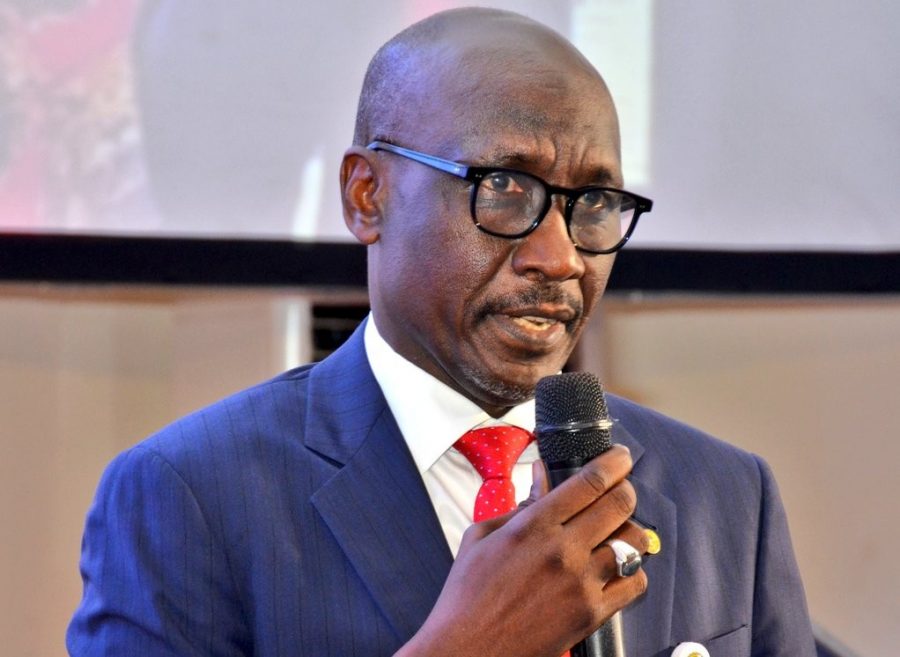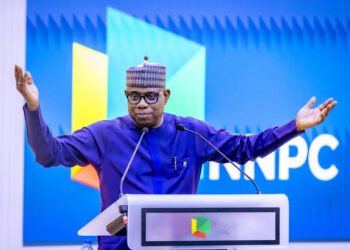For every Nigerian rejoicing over the recent oil price surge that it would boost the nation’s economy and affects lives of citizens, the Group Managing Director of Nigeria National Petroleum Corporation, Mele Kyari, has a word for you.
Contrary to the assumption of several critics that surge is largely driven by the increasing demand for the ‘Black Gold’, the NNPC boss argued that the prices are only driven by sentiments and not demand as speculated. Kyari disclosed this at a weekly programme tagged ‘Half-Time Talk’ organised by Gulf Intelligence, a United Arab Emirate based communication and research firm on Wednesday.
Kyari, who also represented Nigeria at the OPEC meeting held last weekend, explained that it is very obvious that the crude market would not achieve balancing earlier than 2021 and forecasts state that the world may still have over 79 million barrels excess supply by the end of the year.
What it means: He insisted that the market would not rebound until some people do certain things to hold on to the production of the commodity, as that is the only way to bring the supply down. According to him, the price shift witnessed in the last 10 days is indicative of the response to the cut and some development seen in the market.
READ MORE: Non-Performing loans hit 4-year low as Banks recover N496 billion
He said, “Everyone should know that it is not sustainable as long as the production level remained at the Pre-COVID range. The supply will overshoot the demand in a short time and we will likely slide back to where we were in early March 2020.
“The recent drive we have seen in the price of crude is largely driven by sentiments than demand because we have not seen the significant rise in the demand. There is no 100% conformity with the cut and that means that the volume is still there. The price jump appears cosmetic to me and if we don’t contain the supply, we could slide to the early March price level.”
On whether Nigeria has conformed to the cut agreement or not, Kyari disclosed that the nation has not fully conformed to the oil cut by the end of May but said it would be the end of June. On the reasons Nigeria could not conform, he said,
“The reasons are very different. Managing reservoirs in Nigeria is very different from other jurisdictions. You have to have a plan around the wells and if you pull them down at the same time, you may not be able to recover them. Looking at the last 10 days, we have gone below conformity, which we are still trying to manage. It is a gradual process to cut down by well and reservoirs levels. We know that the current numbers we are seeing today will take us to conformity by the end of June.”
He added that meeting the cut deadline would be easier for the nation, as her oversupply stands at a little less than 100,000 per barrel, which Kyari said is not really significant. He also assured that the nation does not need more cuts in July and August to balance up for May and June.
READ ALSO: Nigeria explains when it will fully comply with OPEC+ output cut
Meanwhile, OPEC+ after its weekend meeting agreed to extend the current output cut of 9.7 million barrels per day till June. The latest agreement by the 23 nation alliance is hinged on promises from Nigeria and the other non-compliant members to make up for their past disregard of their oil output quota.
It would be recalled that Nigeria’s Minister of State for Petroleum, Timipre Sylva, has stated earlier that the country implemented only about 52% of the designated output cut in May when it pumped 1.613 million barrels per day.
Nigeria had earlier reaffirmed its commitment to OPEC+ new deal on the extension of the first phase of output cut of 9.7 million barrels per day. They promised to continue to collaborate with other OPEC+ member countries to come up with measures that will help rebalance and stabilize the oil market.
























